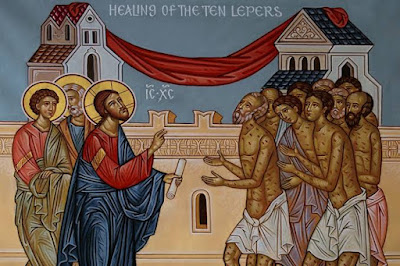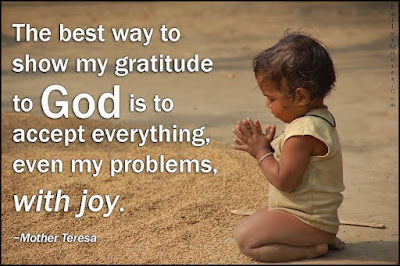SALVATION AND GRATITUDE.
October 9, 2022.
Twenty-eighth Sunday in Ordinary Time – C.
Readings: 2 Kgs 5:14-17; Ps 98:1, 2-3, 3-4; 2 Tm 2:8-13; Lk 17:11-19.“Ten were cleansed, were they not? Where are the other nine? Has none but this foreigner returned to give thanks to God?” Lk 17:18
A Paraguayan proverb says: “Gratitude is the least of virtues, but ingratitude the worst of vices.” And a Swahili proverb adds: “The gratitude that bees receive is the smoke that people use to expel them and get at their honey.”
Salvation is for all. It is not the private property of a group or a specific people. The Lord wants to save all people and everyone. What is required to enter that great and mysterious gift is faith. Faith, as we heard last Sunday, is what leads to salvation and makes miracles possible. And that faith has no color, no language, no race. It is opened to all and for all, foreigners or national, yellow or green, white or black. In the universe of God graces and miracles, there is nothing written such as "No Trespassing. Private Property."
Today's readings plunge us once again in the universe of faith as something universal and they also throw a spotlight on another beautiful virtue that springs from genuine faith, that is gratitude. It is all about faith and gratitude. Faith works for us miracles and gratitude is our return or feedback to God.
May we start with the second point of the Gospel, that of gratitude or gratefulness. About it we can read in the teaching of the Church: “Thanksgiving characterizes the prayer of the Church which, in celebrating the Eucharist, reveals and becomes more fully what she is. Indeed, in the work of salvation, Christ sets creation free from sin and death to consecrate it anew and make it return to the Father, for his glory. The thanksgiving of the members of the Body participates in that of their Head.” CCC 2637
Our deep being as Christians gets its meaning through gratefulness or thanksgiving. Not only is it the summit of our prayer, but it is also what we have been created for, to praise and give thanks to God for all his blessings and for his love at works in us.
The first reading and the Gospel meet on two similar elements. Sick peoples seek healing from leprosy. Once they are healed, some return, the heart filled with gratitude to praise the Lord and give thanks. And these people are Pagans or foreigners. In the first reading, we hear about Naaman the Syrian who after executing the order of the Prophet Elisha, found himself healed of his leprosy. Then the author mentions that Naaman returned to the man of God and acknowledged the Lord and sang his praises. He wanted to offer many material things to the prophet, but the latter on refused. Therefore, Naaman, out of gratitude, asked to be allowed to carry away some earth from Israel in order for him to adore no other God but the Lord who healed him.
Like he did for Naaman, the Lord our God is still at work in our lives to heal us from all our infirmities and the wounds of our sins. How then do we return to him?
In the Gospel, another healing and the return of gratitude. Luke narrates the story of ten lepers who begged for purification and healing. The Lord ordered them what to do. On the way, all were healed. But surprisingly, only one returned to praise the Lord and express his gratitude for the miracle. Here is the paradox of human life and the sad reality in which we live today. Many people have lost the sense of gratitude. They take everything for granted. No matter what the Lord does for them, they do not return to him to give thanks.
Gratitude we said is an act of faith. It is an essential element of genuine faith and also a sign of obedience. It is the first and greatest thing we owe to God, more than our offerings and material gifts. In that sense, ungrateful people do not deserve to live because, even the breath they breathe every day is given them by God.
Some few years back, I wrote a meditation on gratitude inspired by the story of one of our former seminarians and religious. He lived with the religious Congregation for some six years. All his needs, from human to academic and any other things were taken in charge and provided by the Congregation. He graduated in philosophy and wrote long lines of Thanksgiving to his friends, family, teachers and many other people. Regrettably, nowhere in his litany of gratitude did he mention the Congregation nor the priests who worked at his formation... He was with a selective gratitude. How sad it was to read that lack of gratitude to the religious family which made him. And that is the situation of many young people today, indifferent or selective gratitude.
Like this young man, many people lack today of gratitude to the Lord. Not only do they take everything for granted or as a right for them, but they eve complain when things do not happen as they expect. Gratitude being an act of faith, ingratitude, therefore, speaks of a lack of faith. It is a form of rejection of the Lord. And Paul in the second reading can warn us about it. If we reject the Lord through ingratitude, he will also reject us. Though he will never deny himself by being unfaithful to his promises, the Lord does not oppose our choice. If we choose to forsake him or turn away from him, he respects our freedom. Thus Paul can state: “But if we deny him he will deny us. If we are unfaithful he remains faithful, for he cannot deny himself.” Like Naaman and the foreign man in the Gospel, let us be people of great faith and filled with gratitude to the Lord for all his goodness and love. May we never take any of his goodness for granted nor deny him by our ungratefulness.





Comments
Post a Comment